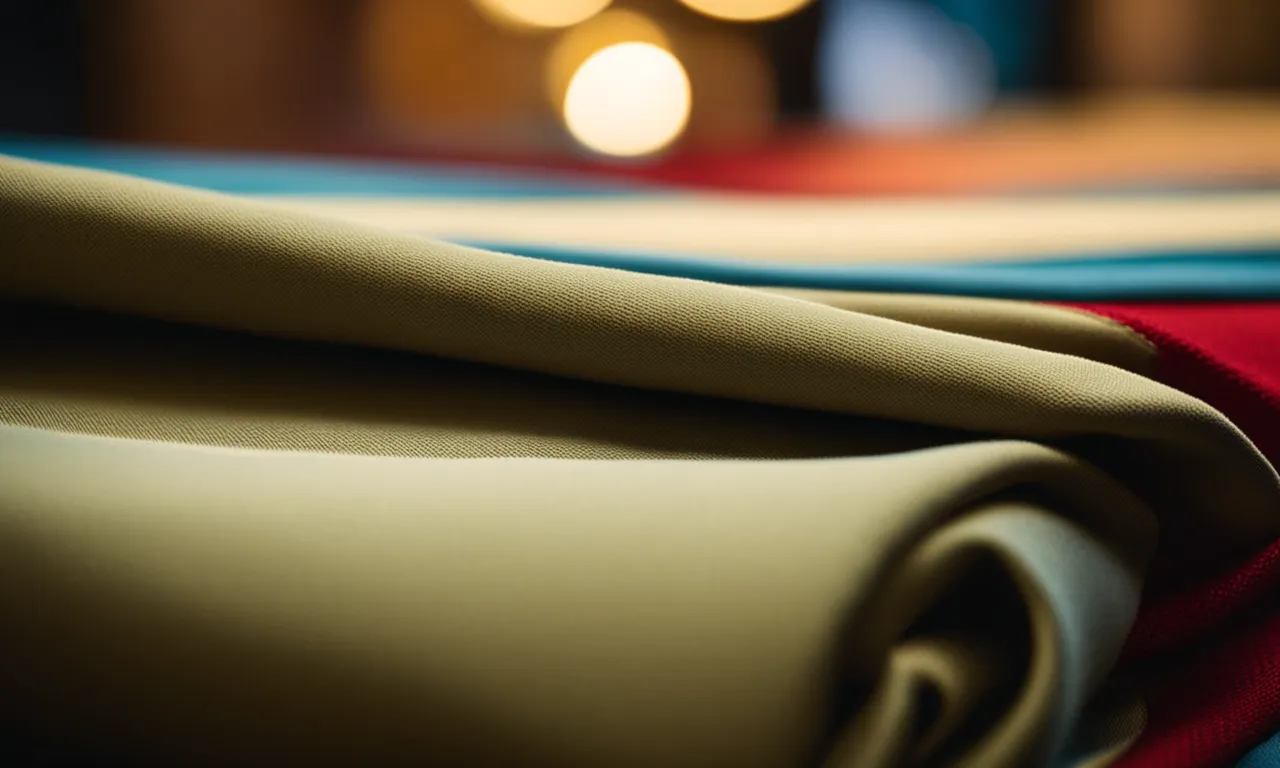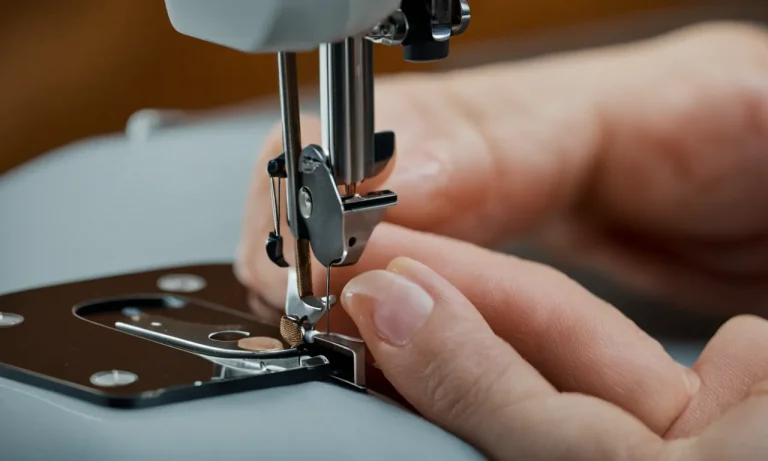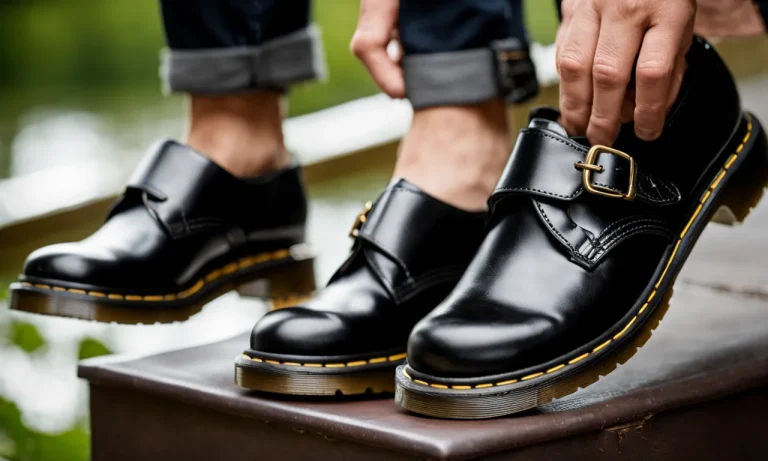What Does 100% Polyester Feel Like? A Detailed Look
Polyester is one of the most commonly used fabrics today. It’s inexpensive, durable, and versatile. But what exactly does 100% polyester feel like? In this comprehensive guide, we’ll examine the look, feel, and properties of polyester fabric.
If you’re short on time, here’s a quick answer: 100% polyester fabric typically feels smooth, lightweight, and a little stiff compared to natural fabrics like cotton or silk. It doesn’t breathe well, can feel static-y, and has a synthetic, plastic-like feel.
We’ll cover the texture, drape, breathability, advantages, disadvantages, and care instructions for 100% polyester fabric. We’ll also compare it to other common fabrics like cotton, nylon, spandex, and rayon. Let’s dive in!
The Look and Feel of 100% Polyester
Smooth and Slightly Stiff
When it comes to the look and feel of 100% polyester fabric, one of the first things you’ll notice is its smooth texture. Polyester is known for its sleek surface, which can feel quite pleasant against the skin.
However, it is important to note that polyester fabric can also be slightly stiff, especially when compared to natural fibers like cotton or silk. This stiffness gives polyester a more structured appearance, making it a popular choice for tailored garments.
Lightweight and Thin
Another characteristic of 100% polyester fabric is its lightweight and thin nature. Polyester fibers are relatively fine, giving the fabric a delicate and airy feel. This makes it ideal for warm weather clothing or lightweight layers.
Additionally, the thinness of polyester fabric allows for easy layering without adding unnecessary bulk.
Lacks Drape
One aspect where polyester fabric differs from natural fibers is its lack of drape. Drape refers to how fabric hangs or falls when used for clothing. Polyester tends to have a more rigid structure, which means it may not flow or drape as gracefully as fabrics like silk or rayon.
However, this stiffness can be an advantage for certain styles, as it helps maintain the shape and structure of garments.
Prone to Static
One downside of 100% polyester fabric is its tendency to generate static electricity. This means that polyester garments may cling to the body or other fabrics, especially in dry environments. To combat static, you can use anti-static sprays or dryer sheets when laundering polyester clothing.
Additionally, wearing a slip or using a static-reducing spray can help minimize this issue.
Breathability and Temperature Regulation
When it comes to breathability and temperature regulation, 100% polyester fabric may not be the first choice for everyone. While polyester is known for its durability and low maintenance, it is not the most breathable fabric option available.
Doesn’t Breathe Well
Polyester is a synthetic fabric that does not allow air to pass through easily. This lack of breathability can lead to a build-up of heat and moisture on the skin, causing discomfort, especially in hot and humid conditions.
Unlike natural fibers like cotton or linen, polyester traps heat and can make you feel sweaty and sticky.
Moisture Wicking Properties
However, it’s important to note that polyester fabrics have come a long way in terms of technology and innovation. Many modern polyester fabrics now have moisture-wicking properties, which means they are designed to pull sweat away from the body and to the surface of the fabric, where it can evaporate more easily.
This helps to keep you feeling dry and comfortable during physical activities or in hot weather.
Dries Quickly
Additionally, polyester is known for its quick-drying properties. Unlike natural fibers that tend to retain moisture, polyester fabric dries relatively fast, making it a practical choice for outdoor activities or when you need to wash and dry your clothes quickly.
This feature can be especially useful when traveling or participating in sports.
Insulating in Cold Weather
Another advantage of polyester is its ability to provide insulation in cold weather. The synthetic fibers in polyester help to trap body heat, keeping you warm when the temperature drops. This makes it a suitable choice for winter wear, outdoor activities in chilly climates, or as a base layer for layering garments.
While 100% polyester may not be the most breathable fabric, its moisture-wicking and quick-drying properties, along with its insulation capabilities, make it a versatile option for various situations.
If breathability is a top priority, considering blends that combine polyester with natural fibers like cotton or bamboo can offer a balance between durability and breathability.
Advantages of 100% Polyester
Durable and Resilient
One of the main advantages of 100% polyester fabric is its durability and resilience. Polyester fibers are known for their strength and ability to withstand wear and tear. They are resistant to stretching, shrinking, and wrinkling, making them perfect for clothing and home textiles.
Polyester fabrics can withstand frequent washing and drying without losing their shape or color, making them a great choice for long-lasting and durable items.
Wrinkle Resistant
Another advantage of 100% polyester is its wrinkle-resistant properties. Polyester fibers have a natural elasticity that helps them retain their form and resist creasing. This makes them ideal for clothing and linens that require minimal ironing and maintenance.
Whether you’re traveling or simply don’t have time to iron, polyester garments will keep you looking polished and wrinkle-free.
Retains Shape
Polyester fabric has excellent shape retention, meaning it will maintain its original form even after repeated use and washing. This is especially beneficial for items like activewear, swimwear, and upholstery, where maintaining the shape and structure is important.
Polyester’s ability to bounce back and resist stretching ensures that your clothes and furniture will look great for a long time.
Quick Drying
One of the standout advantages of 100% polyester is its quick-drying properties. Polyester fabric is hydrophobic, meaning it repels water and dries faster than natural fibers like cotton. This makes polyester ideal for swimwear, athletic apparel, and outdoor gear that may get wet.
The quick-drying nature of polyester also helps prevent the growth of mold and mildew, keeping your items fresh and odor-free.
Easy to Care For
Polyester fabric is incredibly easy to care for, making it a popular choice for busy individuals. It is machine washable, and most polyester items can be tumble dried on low heat or hung to dry. Polyester is also resistant to fading, so you don’t have to worry about your clothes losing their color over time.
Additionally, polyester is less likely to shrink compared to natural fibers, providing convenience and peace of mind when it comes to laundry care.
Disadvantages of 100% Polyester
Not Breathable
One of the main disadvantages of 100% polyester fabric is that it is not very breathable. Polyester is a synthetic material that does not allow proper air circulation. This can cause discomfort, especially in hot and humid weather.
When wearing polyester clothing, the body’s natural perspiration is unable to evaporate, leading to a sticky and uncomfortable feeling. It is important to choose breathable fabrics, such as cotton or linen, for better comfort.
Can Feel Static-y
Another drawback of 100% polyester is that it can feel static-y. Polyester is known for its ability to generate static electricity, which can result in clothes clinging to the body or hair sticking to the fabric.
This can be quite frustrating, especially during winter months when the air tends to be drier. To mitigate this issue, using anti-static sprays or dryer sheets can help reduce static cling.
Heat Retention in Hot Weather
Polyester is not ideal for hot weather conditions as it tends to retain heat. Unlike natural fibers like cotton or linen, polyester does not allow heat to escape easily. This can make the wearer feel hot and sweaty, which can be uncomfortable.
It is advisable to opt for lighter and more breathable fabrics during warmer seasons.
Absorbs Odors
Another disadvantage of 100% polyester is that it has a tendency to absorb odors. Polyester fibers have a large surface area, which makes it easier for them to trap and retain odors. This means that if you sweat or come in contact with strong-smelling substances, the odor may cling to the fabric.
Regular washing is necessary to keep polyester garments smelling fresh.
Not Environmentally Friendly
From an environmental standpoint, polyester is not the most sustainable choice. It is a synthetic material derived from petrochemicals, which means it is not biodegradable. Additionally, the production of polyester requires a significant amount of energy and water, contributing to environmental pollution.
If you are looking for more eco-friendly options, consider fabrics made from natural fibers or those that are labeled as recycled polyester.
Caring for and Washing 100% Polyester
Machine Wash Cold
When it comes to caring for your 100% polyester clothing, it is important to follow the manufacturer’s instructions. In general, machine washing your polyester garments in cold water is recommended to prevent shrinking and fading.
Cold water helps to preserve the color and shape of the fabric, ensuring that your clothing remains vibrant and looking great.
Low Heat Drying
After washing your polyester items, it is best to use a low heat setting when drying them. High heat can cause the fibers to weaken and potentially shrink the fabric. By using a low heat drying setting or even air drying, you can help maintain the integrity of the polyester material.
This will also help prevent any unwanted wrinkles from forming.
Avoid Ironing
Unlike some other fabrics, 100% polyester generally does not require ironing. The synthetic fibers in polyester are resistant to wrinkles, which means you can save time and effort by skipping the ironing step.
If you do find any minor wrinkles in your polyester clothing, hanging them up or using a garment steamer can help smooth them out without the need for ironing.
Dry Cleaning Option
In some cases, it may be best to opt for dry cleaning when it comes to caring for your 100% polyester items. This is especially true for delicate or structured garments that may be more prone to damage in a washing machine.
Dry cleaning can help maintain the shape and quality of your clothing, ensuring that it lasts for years to come. However, it’s always a good idea to check the care label on your polyester items to see if dry cleaning is recommended.
Keep in mind that these are general guidelines for caring for and washing 100% polyester. Always consult the care label on your specific garments for the manufacturer’s recommended instructions. By following these tips, you can keep your polyester clothing looking great and feeling comfortable for a long time.
100% Polyester vs. Other Fabrics
Vs. Cotton: More durable but less breathable
When it comes to comparing 100% polyester with cotton, there are a few key differences to consider. Polyester is known for its durability and resistance to wrinkles, making it a popular choice for clothing that needs to withstand wear and tear.
On the other hand, cotton is a natural fiber that is known for its breathability and softness. While polyester may not be as breathable as cotton, it does have the advantage of being more resistant to stains and fading.
Vs. Nylon: Lighter weight with more drape
When comparing 100% polyester with nylon, there are some notable differences in terms of weight and drape. Nylon is known for being lightweight and has a smoother texture compared to polyester. It also has excellent resistance to abrasion and is often used in outdoor gear and activewear.
Polyester, on the other hand, has a slightly heavier feel and tends to drape less than nylon. However, it does offer better resistance to wrinkles and has a more affordable price point.
Vs. Spandex: Less stretchy with better shape retention
Comparing 100% polyester with spandex reveals some interesting differences in terms of stretch and shape retention. Spandex, also known as Lycra or elastane, is highly stretchable and is commonly used in activewear and form-fitting garments.
Polyester, on the other hand, has less stretch but offers better shape retention. This means that garments made from polyester are less likely to lose their shape over time, making them a great choice for items that need to maintain their structure.
Vs. Rayon: Synthetic feel vs. semi-natural drape
When comparing 100% polyester with rayon, the differences lie in the feel and drape of the fabric. Rayon is a semi-natural fabric made from wood pulp, giving it a soft and silky feel. Polyester, being a synthetic fabric, has a smoother and shinier appearance compared to rayon.
While rayon may have a more luxurious feel, polyester is more durable and less prone to shrinking or stretching. It’s worth noting that both fabrics have their own unique qualities and can be suitable for different purposes.
Conclusion
In summary, 100% polyester fabric has a smooth, lightweight, and slightly stiff feel compared to natural fabrics. It excels in durability, wrinkle resistance, quick drying, and easy care. But the tradeoffs are poor breathability, static, and a synthetic feel.
Understanding the properties and feel of polyester can help you choose the right fabrics for your needs. For activewear and outdoor gear, polyester is often an ideal choice. For breathable everyday wear, natural fabrics may be preferable.
With proper care, polyester garments can deliver long-lasting wear.
We hope this comprehensive overview gave you a feel for what 100% polyester fabric is like. Now you can shop for polyester clothing and textiles with confidence!







